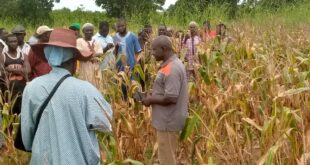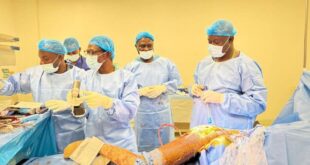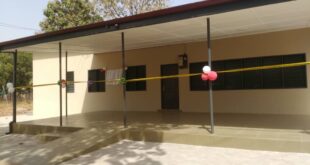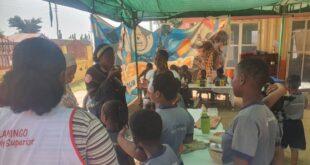Tamale, Ghana – Coordinator of Coalition for Development of Northern Ghana (NORTHCODE), Cletus Zume, is seeking a closer collaboration among chiefs, land owners, ministries, department and agencies of government to ensure increased access to productive lands and agricultural inputs for women farmers in Northern Ghana.
According to him, shortage of fertile land resulting from rapid urbanisation was a major factor precluding women from effective land tenure security in the area.
He said NORTHCODE was ready to work with its partner, the Business Sector Advocacy Challenge Fund and other key stakeholders to implement a Women Land Bank Model as part of measures to tackle the challenge.
In a press statement to the media, Mr. Zume said it was worrying especially in Northern Ghana where access to land was mainly ascribed to men due to patrilineal descent and higher status accorded them by society.
Below is the full statement:
Press Statement
NORTHCODE-GHANA
15th November,2019
Implement land bank model for women by drawing useful lessons from failures of block farming
Coalition for Development of Northern Ghana (NORTHCODE-Ghana), is an NGO based in the Northern Region.
NORTHCODE GHANA exists to empower the deprived and vulnerable people and communities in Northern Ghana to work for social and economic development and sound environmental practices for improved living conditions and poverty reduction. It hopes to achieve this through pursuing initiatives that promote human rights and citizenship and engagement with duty bearers. Achieving the mission will be through the recognition and exploration of societal diversity, variations in resources availability and allocation, adoption of integrated approaches and experiences to promote innovative solutions and societal responsibility.
As part of effort to increase women access to productive land and agricultural inputs for increased food production and income generation in Buipe, West Gonja, Mamprusi, North Gonja, Sawla/Tuna/Kalba and Bole Districts, NORTHCODE Ghana, led by its Coordinator, Mr.Cletus Zume launched a study aimed at:
1.Understanding the socio-cultural underpinnings that militate against women access to, control over and use of productive land for agriculture purposes on a sustained period.
2.Examining existing local mechanisms and processes (if any) in land redistribution especially for vulnerable women.
3.Assessing the extent to which women are being considered in the provision of agricultural inputs and services by Departments of Agriculture and other Private Inputs Providers.
From the study, it was established that:
Control over land was mainly ascribed to men due to the higher status credited to them by society, the advantages accorded to men through the patrilineal descent system, the fear of loosing family land upon marriage of a woman to someone from outside her clan or lineage and their leadership roles at the household level.
The research also found out that, women generally had access to or control over smaller parcels of land relative to men. Specifically, respondents indicated that women average land holdings was about 5 acres or less.
Also, land shortage, resulting from rapid urbanization was cited as a major factor precluding women from effectively having land tenure security. This issue was more pronounced, however in the settler communities than in the village areas where land still abounds. Other socio–economic and cultural factors such as the perception of inadequate capacity to utilize land by women; customary practices of widowhood; customary beliefs on land ownership; and customary practices of inheritance were identified.
From the research findings, NORTHCODE Ghana is thus recommending that:
Implementers of the women’s land banks model should take steps to draw lessons from the successes and failures of that block farming scheme in order to avoid any pitfalls while capitalizing on its merits.
Also, NORTHCODE Ghana collaborate with Chiefs and Land Owners, MDAs and the Departments of Agriculture and other identifiable Inputs Dealers and Service Providers to fashion out modalities that ensure that selected women have access to productive land and other agriculture inputs and services in a sustained manner.
Key Research Findings
Although most Respondents were not familiar with the land banks concept as a means to addressing women’s needs in agricultural lands, they are nonetheless open to accepting the idea as a project strategy. This is probably aided by their familiarity with the block farming scheme that has been practised in the recent past under some agricultural projects.
NORTHCODE is proudly sponsored by BUSAC in this crusade.
Signed:,
Cletus Zume
(DIRECTOR, NORTHCODE-GHANA)
0540912402/0208923936
By SavannahNewsOnline.Com/Philip Liebs
 Savannah News Online Reporting Only What Matters Most
Savannah News Online Reporting Only What Matters Most



